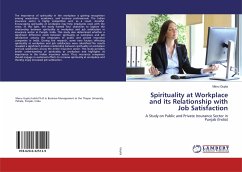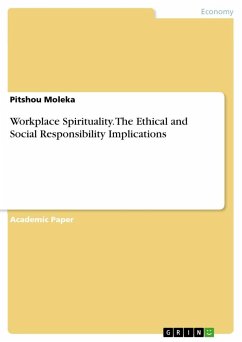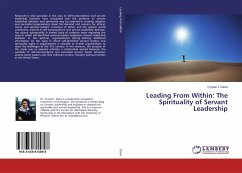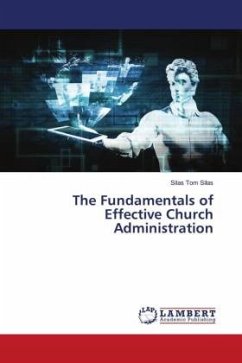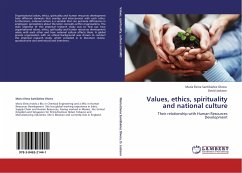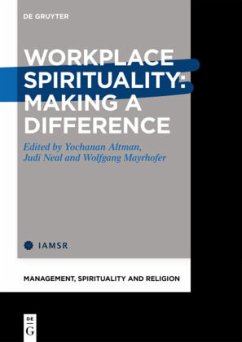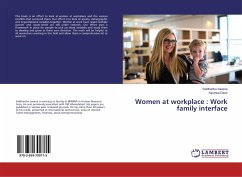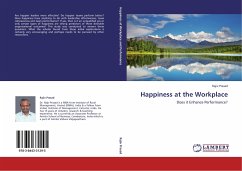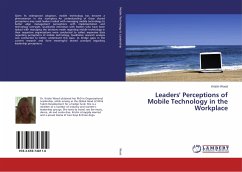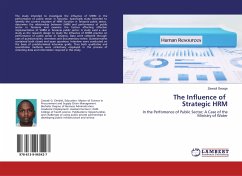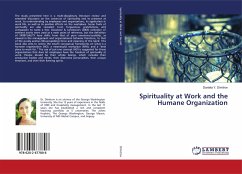
Spirituality at Work and the Humane Organization
Versandkostenfrei!
Versandfertig in 6-10 Tagen
41,99 €
inkl. MwSt.

PAYBACK Punkte
21 °P sammeln!
The study presented here is a multi-disciplinary literature review and extended discussion on the construct of Spirituality and its presence at work, its understanding by employees and organizations, its application in work life, as well as its positive effects on the workplace. Some fruits of spirituality are also revealed: trust, forgiveness, gratefulness, and compassion to name a few. Giacalone & Jurkiewicz's (2003) collection of eminent works were used as a main point of reference, but the definition of SPIRITUALITY here shifts from that of pure emotional soulality, as viewed in the manage...
The study presented here is a multi-disciplinary literature review and extended discussion on the construct of Spirituality and its presence at work, its understanding by employees and organizations, its application in work life, as well as its positive effects on the workplace. Some fruits of spirituality are also revealed: trust, forgiveness, gratefulness, and compassion to name a few. Giacalone & Jurkiewicz's (2003) collection of eminent works were used as a main point of reference, but the definition of SPIRITUALITY here shifts from that of pure emotional soulality, as viewed in the management and organizational behavior literature, to that of the purely animus (life-propelling) force and meaning of the Spirit. This book also aims to review the extant conceptual frameworks on what is a humane organization (HO), a meaningful workplace (MW), and a "best place to work for." The use of just one concept (HO) is suggested for those organizations that dare let employees have the freedom of spirituality at work. People should be their whole beings, which includes their productive bodies and minds, their distinctive personalities, their unique emotions, and even their livening spirits.



